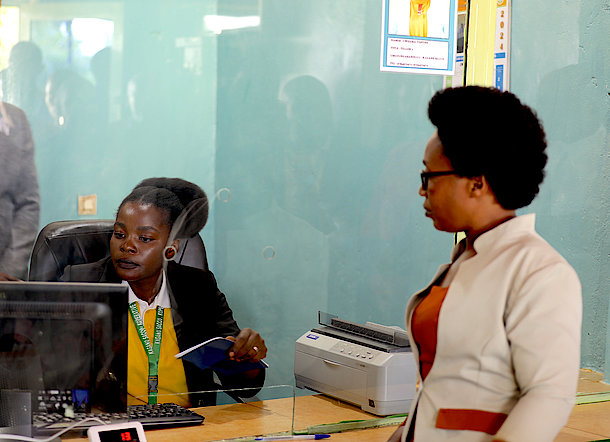
Nyamasheke: Today, the Ministry of Finance and Economic Planning (MINECOFIN), in collaboration with key ministries (MINALOC, MINICT, and MINICOM), government agencies (BNR, RCA, and RISA), and development partners (World Bank, AFR, DSIK, and FCDO), celebrates a significant milestone in the professionalization of UMURENGE SACCOs (U-SACCOs). The completion of the automation phase of all 416 UMURENGE SACCOs operating in Rwanda’s 416 administrative sectors marks a pivotal moment in the journey towards enhancing financial services, and paves the way to their consolidation into District SACCCOs (D-SACCOs) that will later form the establishment of a cooperative bank.
Since the 1970s, SACCOs have been an integral part of Rwanda’s financial landscape. However, the findings of the 2008 Finscope study revealed that 52% of the adult population faced financial exclusion. To address this issue and promote economic development, the National Dialogue Meeting in December 2008 recommended the establishment of at least one SACCO in each Administrative Sector (UMURENGE).
Despite the formation of 416 USACCOs starting in 2009, these institutions faced operational challenges, including manual business operations, limited scope of business, and a lack of digital financial services for members. To tackle these challenges, the UMURENGE SACCOs automation and consolidation Project under MINECOFIN’s leadership aims to professionalize these financial institutions through a three-step process: automation of U-SACCOs, consolidation into D-SACCOs, and the establishment of a Cooperative Bank to serve U-SACCOs and their members.
The automation phase involves transitioning U-SACCOs from manual to automated management information systems for improved efficiency and member service. Concurrently, the consolidation process merges automated USACCOs at the district level to form D-SACCOs, with existing U-SACCOs becoming branches of the new entities.
With the implementation of automated systems, U-SACCOs eliminate the need for physical journals and offer real-time mobile notifications to members. The introduction of mobile banking services enhances accessibility and convenience for members, enabling transactions anytime, anywhere.
As the automation of 416 USACCOs concludes, the next focus is on consolidating these SACCOs into D-SACCOs nationwide and deploying mobile banking systems across all branches. Future plans include D-SACCOs purchasing shares in the Cooperative Bank, fostering strategic linkages to provide advanced financial services to members.
This achievement signifies Rwanda’s commitment to financial inclusion and economic empowerment, setting the stage for enhanced financial services delivery and sustainable development. (End)
